The Final Examination Page
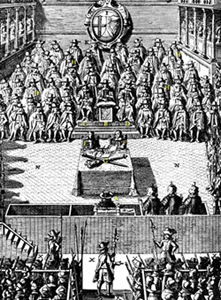 |
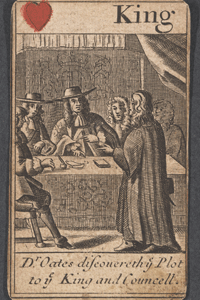 |
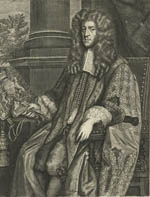 |
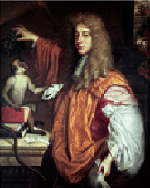 |
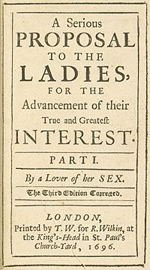 |
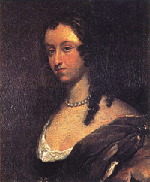 |
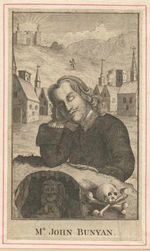 |
|---|
E102B Restoration and Revolution Form of Final exam Winter 2014 Van Sant
Wed, Mar 19 8:00 a.m. - 10:00 a.m. In our classroom.
Part I. Identification of quotations
Part II. Close analysis
Part III. Essay
The parts of the exam will carry equal weigh. Part I may be useful to you in your thinking about Part III. In each part of the exam, you will have some choice.
The exam is cumulative but emphasizes the material in the second half of the course.
Part I. Identification of quotations. Directions and sample materialIdentify 10 of the following 12 quotations, indicating full name of writer and exact title. Then write one complete sentence (packing as much into it as you can) indicating the significance of the quotation. Do not write in fragments and do not write more than one sentence.
1. “[T]he men before us, are so ridged, and love so much their own notions, and do also so lightly esteem the opinions of others; that let a man be never so godly, yet if he jumps not with them in all things, they thrust him quite out of their company.”
2.
NOW with a general Peace the World was blest,
While Ours, a World divided from the rest,
A dreadful Quiet felt, and worser farre
Then Armes, a sullen Intervall of Warre:
Thus when black Clouds draw down the lab'ring Skies,
Ere yet abroad the winged Thunder flyes
An horrid Stillness first invades the ear,
And in that silence Wee the Tempest fear.3.
"What rage ferments in your degenerate mind
To make you rail at reason and mankind?
Blest, glorious man! to whom alone kind heaven
An everlasting soul has freely given,
Whom his great Maker took such care to make
That from himself he did the image take
And this fair frame in shining reason dressed
To dignify his nature above beast;
Reason, by whose aspiring influence
We take a flight beyond material sense."4.
Tell me, ye fair ones, that exchange desire,
How 'tis you hid the kindling fire.
Oh! would you but confess the truth,
It is not real virtue makes you nice:
But when you do resist the pressing youth,
'Tis want of dear desire, to thaw the virgin ice.
And while your young adorers lie
All languishing and hopeless at your feet,
Raising new trophies to your chastity,
Oh tell me, how you do remain discreet?
How you suppress the rising sighs,
And the soft yielding soul that wishes in your eyes?
While to th' admiring crowd you nice are found;
Some dear, some secret, youth that gives the wound
Informs you, all your virtue's but a cheat
And honour but a false disguise.
Your modesty a necessary bait
To gain the dull repute of being wise5.
Well, ‘tis e’en so, I have got the London disease they call love. I am sick of my husband, and for my gallant. I have heard this distemper called a fever, but methinks ‘tis liker an ague, for when I think of my husband I tremble and am in a cold sweat, and have inclinations to vomit.”
----------------------------------------------------------------------------------------------------------------------------------------
Part II. Close analysis. Directions and sample material
Choose one of the following quotations, paraphrase it, and then analyze it closely. Your analysis should begin or end with a general claim about this section.
In pious times, ere priest-craft did begin,
Before polygamy was made a sin;
When man, on many, multipli'd his kind,
Ere one to one was cursedly confin'd:
When Nature prompted, and no Law deni'd
Promiscuous use of concubine and bride;
Then, Israel's monarch, after Heaven's own heart,
His vigorous warmth did variously impart
To wives and slaves: and, wide as his command,
Scatter'd his Maker's image through the land.
Michal, of royal blood, the crown did wear;
A soil ungrateful to the tiller's care:
Not so the rest; for several mothers bore
To god-like David, several sons before.
But since like slaves his bed they did ascend,
No true succession could their seed attend.
Of all this numerous progeny was none
So beautiful, so brave, as Absalom:This quotation is from the beginning of Absalom and Achitophel. You can use our analysis in class to practice for the exam.
----------------------------------------------------------------------------------------------------------------------------------------
Part III. Essay. Directions and sample material.
Choose one of the following essay topics and write an essay. Your essay should have a main point. And you should be as specific as possible in your reference to the works you discuss.
Several of the works we have read treat relations between men and women. Mary Astell, for example, writes, "We value [men] too much and our selves too little, if we place any part of our worth in their Opinion.“ What is her point? What is she trying to correct? Use Astell’s work to compare with Wycherley’s. How does the male-female relation function in each work? What is at stake in each work’s representation of the relation between men and women?